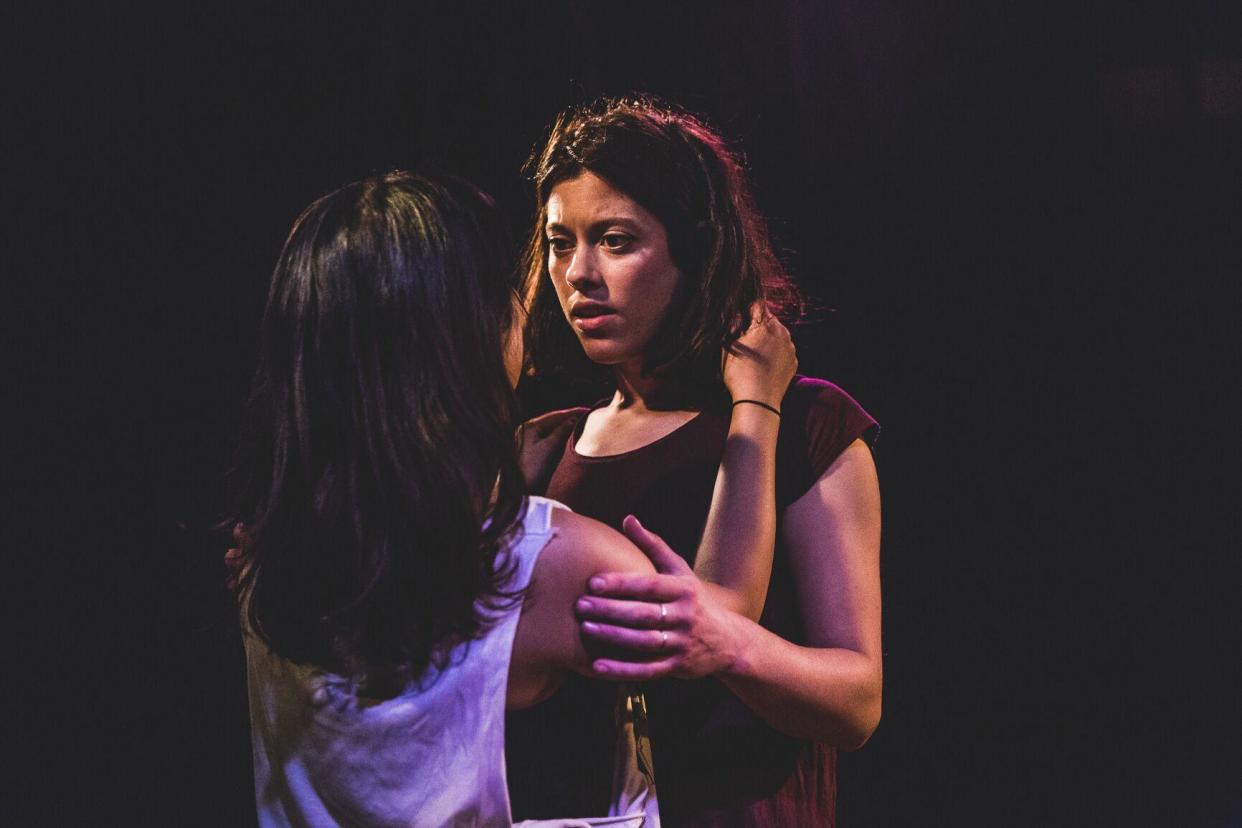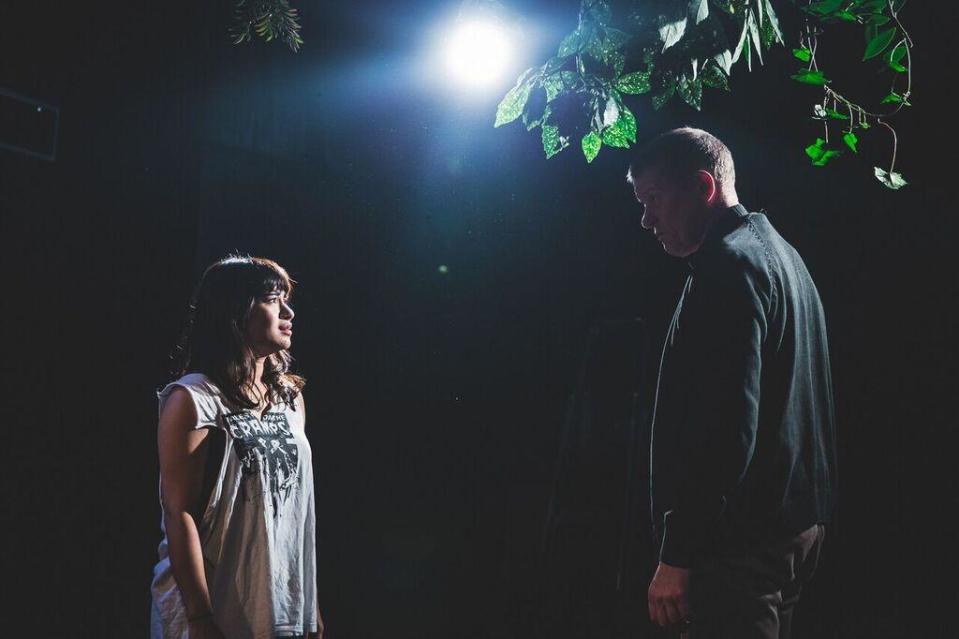Turkey, Hope Theatre, London, review: An exhilarating anti-romance about how babies are made

Where babies come is sometimes a grim business. In her first full length play Frankie Meredith has written a deeply moving tragedy that is small in the scale of its storytelling but all the more resonant because of it.
Turkey, is an extremely enjoyable three hander piece about couple Madeline and Toni (Peyvand Sadeghian and Harriet Green), and Michael, the father of Madeline’s former boyfriend Ben. Twelve years prior to the play’s time frame Ben has died and Madeline is 32 and wants a baby badly, and is willing to get one by any means.
This basic human focused premise does not do justice to the nuance, subtle broaching of issues about homosexual and heterosexual relationships, and tension Meredith has injected into Turkey.
At times full of laughter, at others the audience were made physically uncomfortable by the gut wrenching moments of confrontation.
Within moments the audience are in the couple’s world, and watching Sadeghian and Green interact feels like eavesdropping on a relationship you have known from the outside for decades.
Some of this is achieved through the settings of each scene, in the most intimate moments of a relationship; changing before a job interview and playful bickering in the supermarket about diverting from 'the meal plan'.
The coming betrayal is suggested from the off, but this means that a horrifically excruciating and riveting tension builds over the question of how lies will unravel rather than if they will.

Sadeghian as broody Madline does a good job of being incredibly hateable yet neverless vulnerable and alluring. Similarly Green as the insecure Toni is heartbreaking, and plays the key moments of the piece with staggering accomplishment. Green transitions from a moment of awkward, generic coupledom to accusation and confrontation, in a turn that is believable and uncomfortably familiar for anyone who has ever been trapped in a lie.
No character is an angel, and all of their flaws mean what could be a generic soap opera story never becomes tiring, and it was disappointing to leave the three behind after just 70 minutes.
One out of the ordinary area explored by the play is the anxiety and conflict that can arise in a gay couple when one of them previously engaged in heterosexual relationships, while the other did not.
Meredith's work examines the dichotomy between the conventional white picket fence and baby, versus the de rigeur unconventionality of a gay relationship.
The costs of artificial insemination, sperm banks, and raising a child (£250,000 over 18 years according to this), are all laid out in cold figures, further adding to the idea that the homosexual relationship is more difficult, and potentially less appealing, than the easier heterosexual option of a child born from accident.
The phantom of the deceased Ben is in a way the play’s fourth character, symbolising the road not taken by Madeline, and Michael is not entirely content with Madeline being a lesbian.
More than anything else, the story is a cautionary tale about the destructiveness of secrecy and lies in any relationship, but both the writer and performers take this beyond the ordinary by the intimacy of the play's staging and the strength of characterisation.


